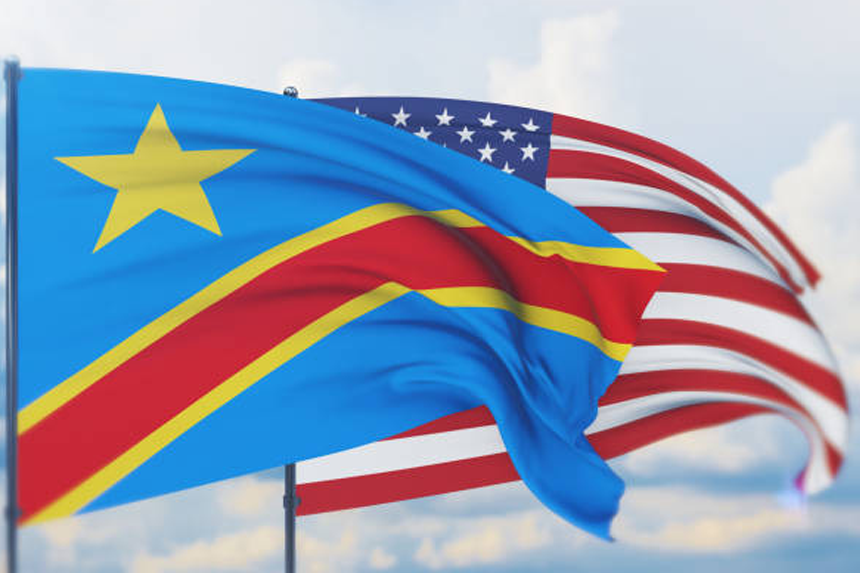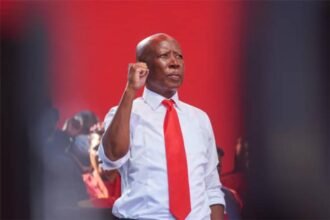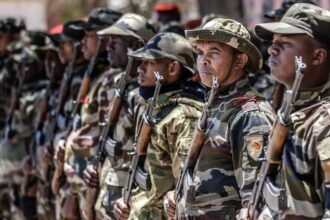Over the past few years, the diplomatic rapport between the United States and the Democratic Republic of Congo (DRC) has changed dramatically. U.S.-DRC relations are changing from emphasizing mostly humanitarian aid and peacekeeping activities to entering new spheres of political and economic collaboration. One significant improvement in these ties was the recent return of three Americans found guilty of their involvement in an abortive coup attempt in the Democratic Republic of the Congo. Apart from its political and legal consequences, this event emphasizes the growing relevance of strategic economic interests between the two countries.
The U.S. growing interest in the mineral richness of the DRC, especially cobalt and coltan, both vital for world electronics and battery manufacture, drives this change. The relationship between the United States and the Democratic Republic of the Congo becomes more complex as both nations investigate fresh chances for cooperation. Examining important developments, the effects of current events, and the future of this more strategic alliance, this paper explores the changing U.S.-DRC ties.
How Do U.S.-DRC Relations Now Stand?
For many years, the U.S. government’s backing of humanitarian projects, peacekeeping operations, and democratic progress in the area essentially defined U.S.-DRC relations. The U.S. provided the DRC, with its long history of political unrest and conflict, major help in order to advance stability and changes in government. But the link has changed recently. Particularly in the mining industry, where DRC holds great value for its cobalt and coltan reserves, U.S.-DRC ties are now increasingly centred on strategic interests.
One of the most important minerals in the DRC is cobalt, which is used in batteries for cell phones, electric cars, and other modern gadgets. Access to DRC’s mineral richness has become a primary focus for nations all around, including the United States, as global demand for electric cars and electronics keeps rising. China already spends extensively in the mining and export of these minerals, hence, the U.S. wants to guarantee that its interests in the DRC are safeguarded by direct cooperation.
Furthermore, the DRC is seen by the United States as a major actor in the larger African geopolitical scene, so U.S.-DRC relations are not only important for economic ones but also for security and stability of the region.
Reflecting stronger diplomatic ties, how did the repatriation of prisoners reflect?
The repatriation of three American citizens who were sentenced for their involvement in a failed coup effort in May 2024 is among the most recent and important incidents highlighting the changing U.S.- DRC ties. Originally sentenced to death by a military court in the Democratic Republic of the Congo, these three Americans were Marcel Malanga Malu, Tylor Thomson, and Zalman Polun Benjamin. But their sentences were later changed to life in prison. These prisoners were sent to the United States in a significant diplomatic gesture to serve out their remaining terms.
Under careful adherence to legal processes, the repatriation process marks a development of U.S.-DRC relations. Working together, both nations made sure the transfer went without a hitch, therefore proving their dedication to enhancing judicial diplomacy and global collaboration in issues of justice and human rights. Reflecting the increasing cooperation between the two countries on diplomatic and legal fronts, the U.S. administration announced that the prisoners were now under American custody.
This well-publicized example also emphasizes how changing U.S.-DRC ties are. Strained relations in the past would have made a legal transfer such-wise impossible. This event, however, marks a better diplomatic relationship between the two nations, one that transcends conventional foreign aid and emphasizes handling common interests.
How important is economic cooperation to U.S.-DRC relations?
Apart from legal cooperation, economic cooperation—especially in the mining industry—is progressively guiding U.S.-DRC ties. The DRC is a necessary partner for nations looking for access to these vital minerals, as some of the richest cobalt and coltan resources in the world are here. Ensuring access to DRC’s resources has become a top concern for several nations, including the United States, as the demand for electric cars and cell phones grows worldwide.
Chinese businesses have historically dominated the mining of these minerals in the Democratic Republic of the Congo, which has sparked questions regarding the limited impact of Western nations, including the United States, in the national resource sector. U.S.-DRC relations have evolved to encompass direct mining sector trade and investment prospects as the U.S. strives to guarantee its access to DRC’s mineral riches.
The U.S. government shows interest in encouraging in the DRC more transparent and sustainable mining methods. American businesses can make large investments in the mining infrastructure of the DRC, boosting production capacity for the nation and guaranteeing fair treatment of workers as well as addressing environmental issues. For both the United States and the Democratic Republic of the Congo, such expenditures might bring in billions of dollars in income, so economic cooperation becomes extremely important in U.S.-DRC ties.
Furthermore, the United States wants to cooperate with the DRC in order to grow other industries including infrastructure, healthcare, and manufacturing. Both nations gain from a better balanced and long-term relationship by varying their economic cooperation.
How are the U.S. and DRC working on regional security?
Beyond legal and financial concerns, U.S.-DRC ties have a major security element. One of the most unstable areas in Africa, the DRC, is where the United States has long been backing peacekeeping operations. Among the many difficulties the DRC must deal with are armed groups active in eastern portions of the nation, pervasive corruption, and political unrest.
Both directly through bilateral aid and through the United Nations, the United States has backed several peacekeeping projects. The U.S. can be very important in enabling the DRC to handle security issues by improving U.S.-DRC relations. Therefore, a more stable and safe DRC benefits not only the area but also more general global security concerns.
Furthermore, U.S. military and diplomatic backing in the Democratic Republic of the Congo (DRC) is probably going to continue, emphasizing eradicating armed groups, enhancing government, and advancing human rights. The U.S.-DRC ties will continue to change as the two countries cooperate to handle these issues, therefore confirming their alliance in the framework of regional security.
What Perspectives Exist for U.S.-DRC Relations?
With both countries working toward common objectives, U.S.-DRC ties should become even more robust looking ahead. While the United States will remain a major partner in enabling the DRC to handle its political, social, and economic issues, the abundant natural riches of the DRC will draw American investments. Their relationship, which is changing toward mutual respect, economic cooperation, and legal cooperation, shows that both nations stand to benefit substantially from a closer alliance.
Apart from financial collaboration, U.S.-DRC ties will probably center on climate change, sustainable development, and more general geopolitical policies. The relationship between the United States and the DRC will be crucial in determining the course of Africa as it grows in relevance on the world scene. Using ongoing communication and cooperation, both countries may help to promote regional stability and world development.
Last Thought
Finally, the changing U.S.-DRC relations show a turn toward a more strategic and multifarious cooperation. From the return of American prisoners to increasing mining sector commercial cooperation, the relationship between the United States and the Democratic Republic of the Congo is becoming closer. The ambition to build a more stable and rich cooperation will define U.S.-DRC relations as both countries cooperate on common objectives, including security, economic development, and governance. The course of this partnership will affect not only the two nations but also the larger geopolitics of Central Africa and beyond.








